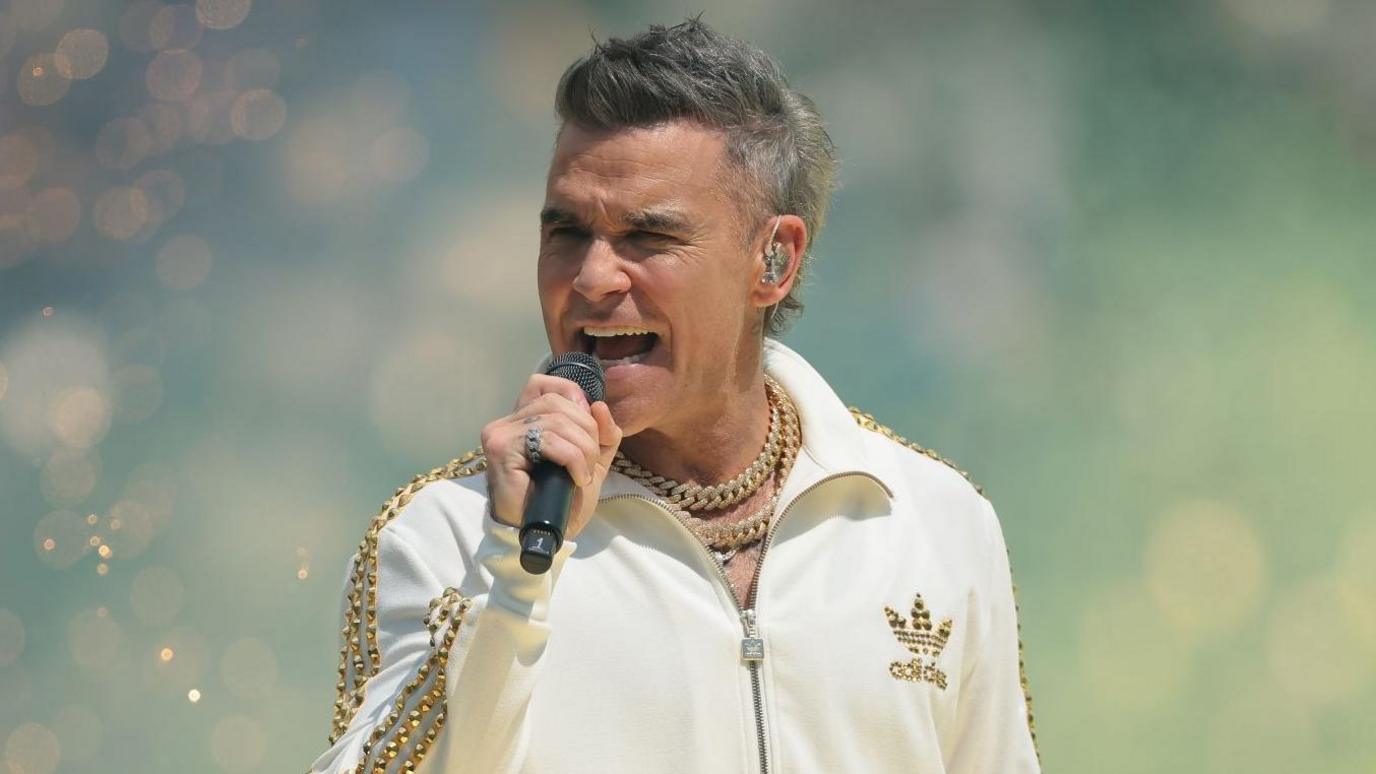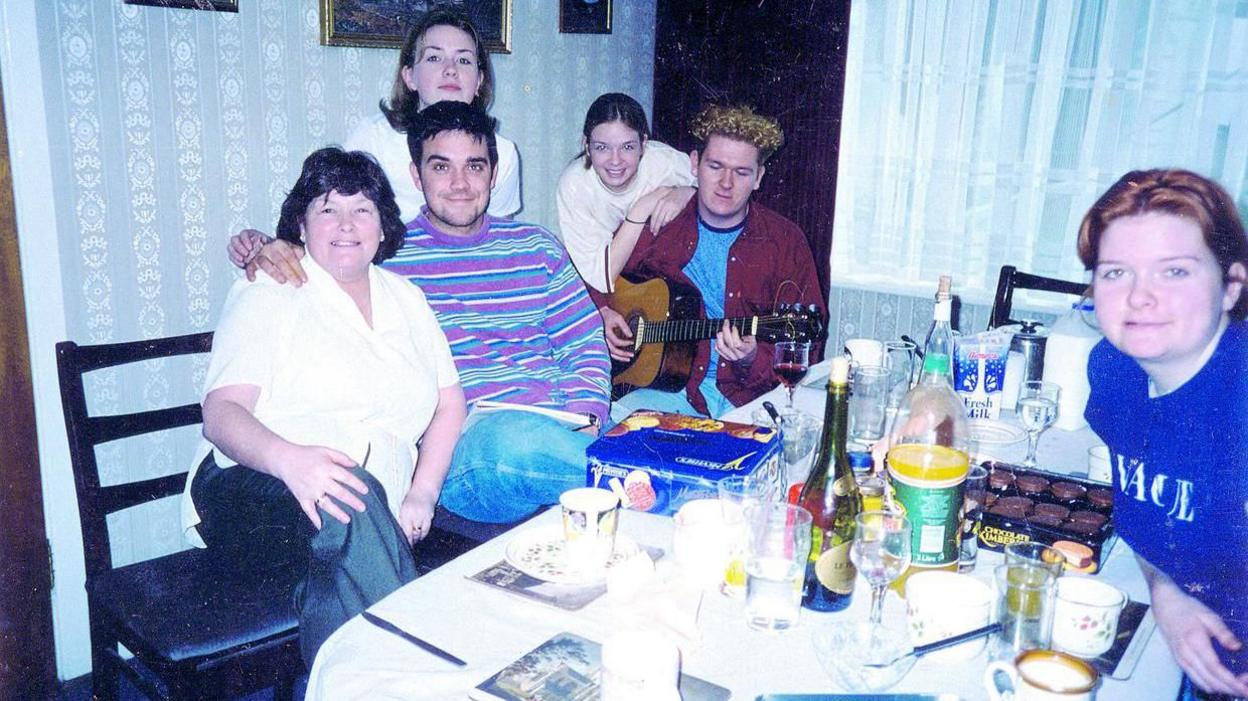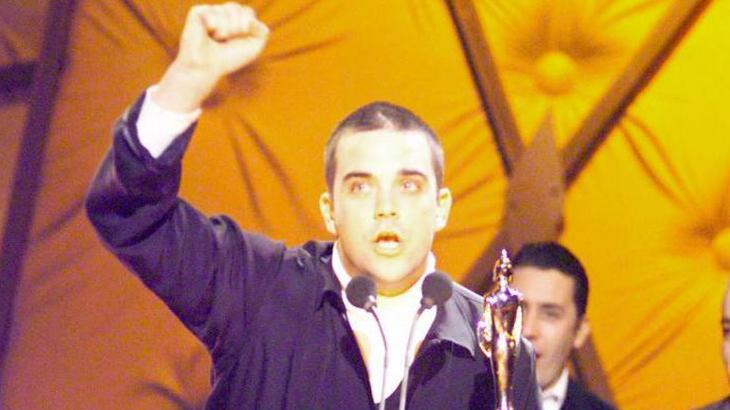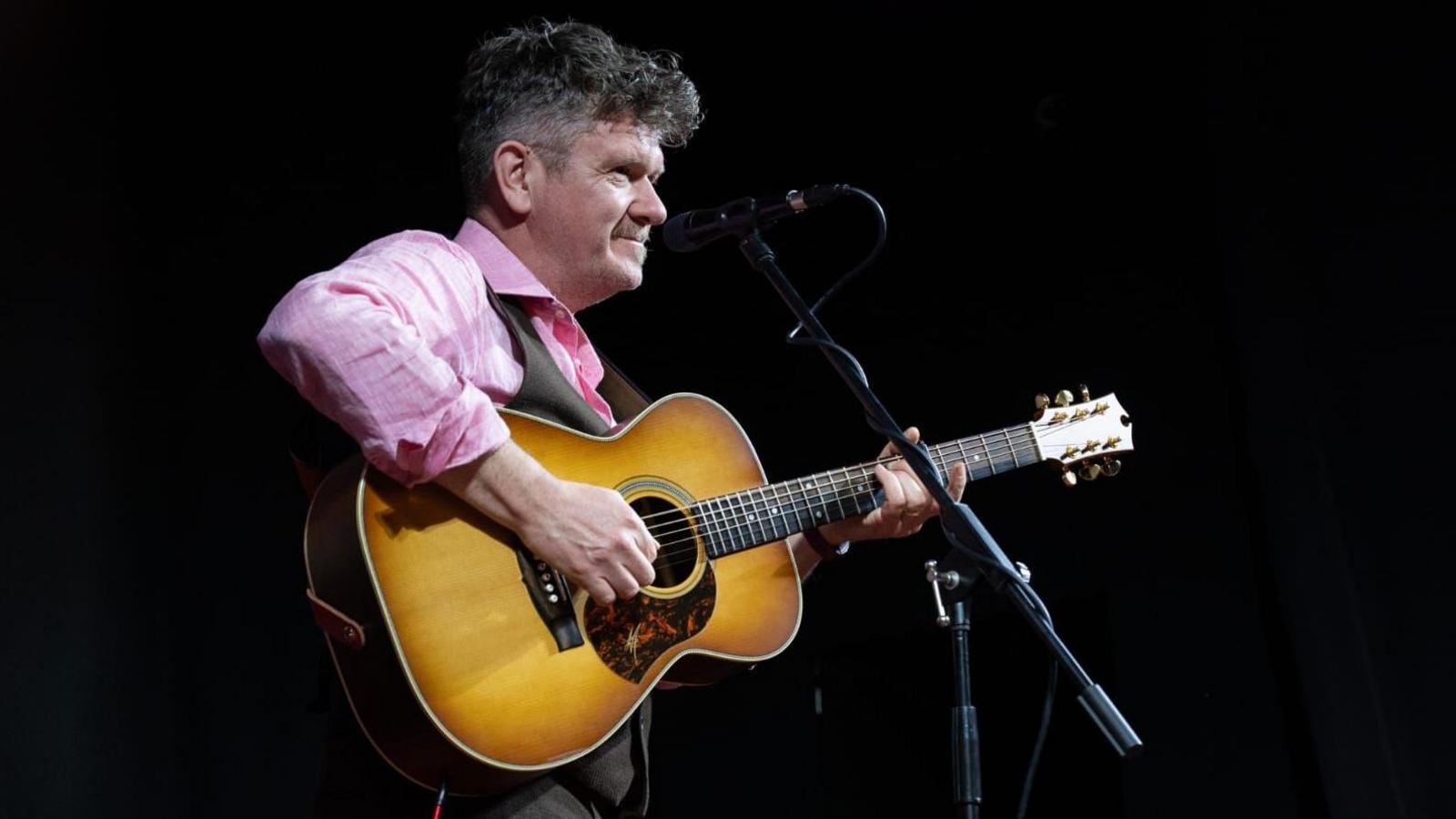'I couldn't listen to Angels for decades'

Ray Heffernan met Robbie Williams during a night out in 1996
- Published
A Dublin songwriter who claims he co-wrote Robbie Williams' hit Angels has said he could not listen to the song for nearly 30 years after the singer only paid him £7,500 for his efforts.
But he was "so, so proud" to see videos of it being sung at Dublin's Croke Park last weekend, a stadium he "grew up in the shadow of".
Ray Heffernan is seeking legal advice to collect royalties on the song, saying he collaborated with the former Take That star after the pair met on a night out in Dublin in 1996 and came up with a rough version of the 1997 single.
He says the lyrics of the song were based on his girlfriend at the time experiencing a miscarriage - and were originally "I'll love an angel instead".
Following advice he received recently from a friend, Heffernan intends to use a clause in EU law, external to renegotiate his contract after the song "took on a life of its own".
The clause allows people who originally accepted a certain payment for creative work to claim "additional, appropriate and fair remuneration" if the work becomes much more successful after the agreement.
BBC News NI has approached Williams' management for comment.

Ray Heffernan (on guitar) says this photograph was taken at his mum's house in Dublin
Heffernan told the BBC's Good Morning Ulster programme that he met the singer in 1996 while out in a bar in Dublin city centre.
Aged 22 at the time, he was trying to get into songwriting.
He says they returned to his mother's house for a songwriting session.
"I was on the guitar, he was shouting ideas at me and I was kind of shaping it into a song so that would have been a 50/50 songwriting session," he said.
One idea they worked on was about an experience Heffernan had with his girlfriend in Paris - with the provisional title An Angel Instead, he said.
"We had a miscarriage, so I won't have a baby to love so I'll love an angel instead was the thinking in the song at the time," he added.
Heffernan said Williams called Irish music manager Louis Walsh and they created a demo.

Williams picked up three Brit Awards in 1999, including Best British Single for Angels
The pair lost touch after Williams returned to England, but Heffernan was later offered £2,500 for his rights in the song's creation.
"When I asked to be among the writers, they offered me £7,500," he said.
"I was 22 at the time and taking advice from the adults around me.
"I accepted the deal and then the song kind of took on a life of its own."
'Hallowed turf'
In the years afterwards, Heffernan said he "always turned [Angels] off when it came on the radio."
People who knew his story would text him that the song was on and he would shudder.
But that changed after Williams played Croke Park - Ireland's largest stadium - last weekend.
Heffernan was not there, but he watched a video of people singing Angels at the close of the concert and, he says, "really loved it".
"Croke Park to me is hallowed turf," he said.
"I played GAA (Gaelic Athletic Association) all my life and went to school in its shadow.
"It really touched me and I thought: 'Wow that's my tribe, singing my words in that part of town'.
"That song resonates where it was written. I was so, so proud."

Ray Heffernan is still working in the music industry
Williams thanked Heffernan on the Angels CD sleeve.
However he has spoken about the situation on a podcast where he said there is a "myth" that he stole the song., external
It has since been reported that Williams branded Heffernan a "fantasist", external after he called on him to publicly acknowledge his role in creating the song.
Allow X content?
This article contains content provided by X. We ask for your permission before anything is loaded, as they may be using cookies and other technologies. You may want to read X’s cookie policy, external and privacy policy, external before accepting. To view this content choose ‘accept and continue’.
Heffernan said the EU law clause gives him fresh hope of a redress.
"My argument is no longer with him, my argument is with the music industry," he said.
"I'm using this new clause to insist that we renegotiate the contract.
"I think it's an opportunity and it can change the law for younger songwriters today."